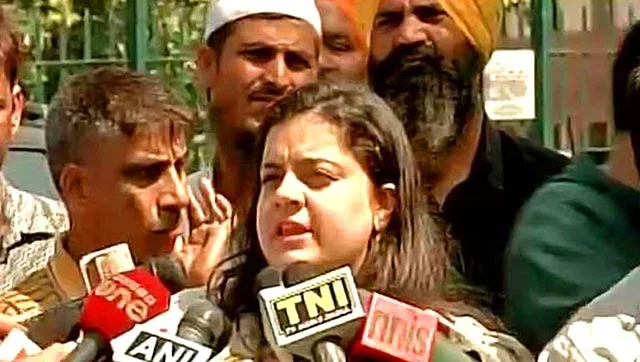prasad1
Active member
The very day the Bombay High Court held that cartoons by Aseem Trivedi, who was arrested in Mumbai in 2011, could not be deemed seditious, a class 11 student from Bareilly was remanded in judicial custody for a Facebook post allegedly uncharitable towards UP minister Azam Khan. The Rampur district police found the post to contain derogatory language and promptly slapped the draconian section 66A of the Information Technology Act, among other laws, against the boy.
For some time now section 66A has become a handy tool for state governments to suppress dissent or even harmless humour that thin-skinned politicians cannot stomach. The arrest of a Jadavpur University professor – for sharing a comic strip which Bengal chief minister Mamata Banerjee did not find amusing – set an unfortunate precedent which found many imitators precisely because the law is so loosely worded. The police show surprising alacrity in invoking the perverse 66A against innocent citizens, but are found wanting in strictly enforcing the law when politicians – and Khan is a prime example – make outrageous statements, often bordering on the communal or designed to incite violence.
Section 66A gives arbitrary powers to the police to make arrests for anything deemed annoying – an entirely subjective term. Not only does it have the potential for being abused, the law attacks the fundamental right of freedom of speech and expression and is therefore unconstitutional. The law itself is an annoyance to democracy and deserves to be struck off the statute books. If the NDA government has any intention at all of embracing PM Modi’s slogan of ‘minimum government, maximum governance’, the first thing it should do is to stop defending 66A and repeal it instead.
Repeal section 66A: Law that permits jailing school kid for Facebook post is objectionable and absurd - TOI Blogs
For some time now section 66A has become a handy tool for state governments to suppress dissent or even harmless humour that thin-skinned politicians cannot stomach. The arrest of a Jadavpur University professor – for sharing a comic strip which Bengal chief minister Mamata Banerjee did not find amusing – set an unfortunate precedent which found many imitators precisely because the law is so loosely worded. The police show surprising alacrity in invoking the perverse 66A against innocent citizens, but are found wanting in strictly enforcing the law when politicians – and Khan is a prime example – make outrageous statements, often bordering on the communal or designed to incite violence.
Section 66A gives arbitrary powers to the police to make arrests for anything deemed annoying – an entirely subjective term. Not only does it have the potential for being abused, the law attacks the fundamental right of freedom of speech and expression and is therefore unconstitutional. The law itself is an annoyance to democracy and deserves to be struck off the statute books. If the NDA government has any intention at all of embracing PM Modi’s slogan of ‘minimum government, maximum governance’, the first thing it should do is to stop defending 66A and repeal it instead.
Repeal section 66A: Law that permits jailing school kid for Facebook post is objectionable and absurd - TOI Blogs

